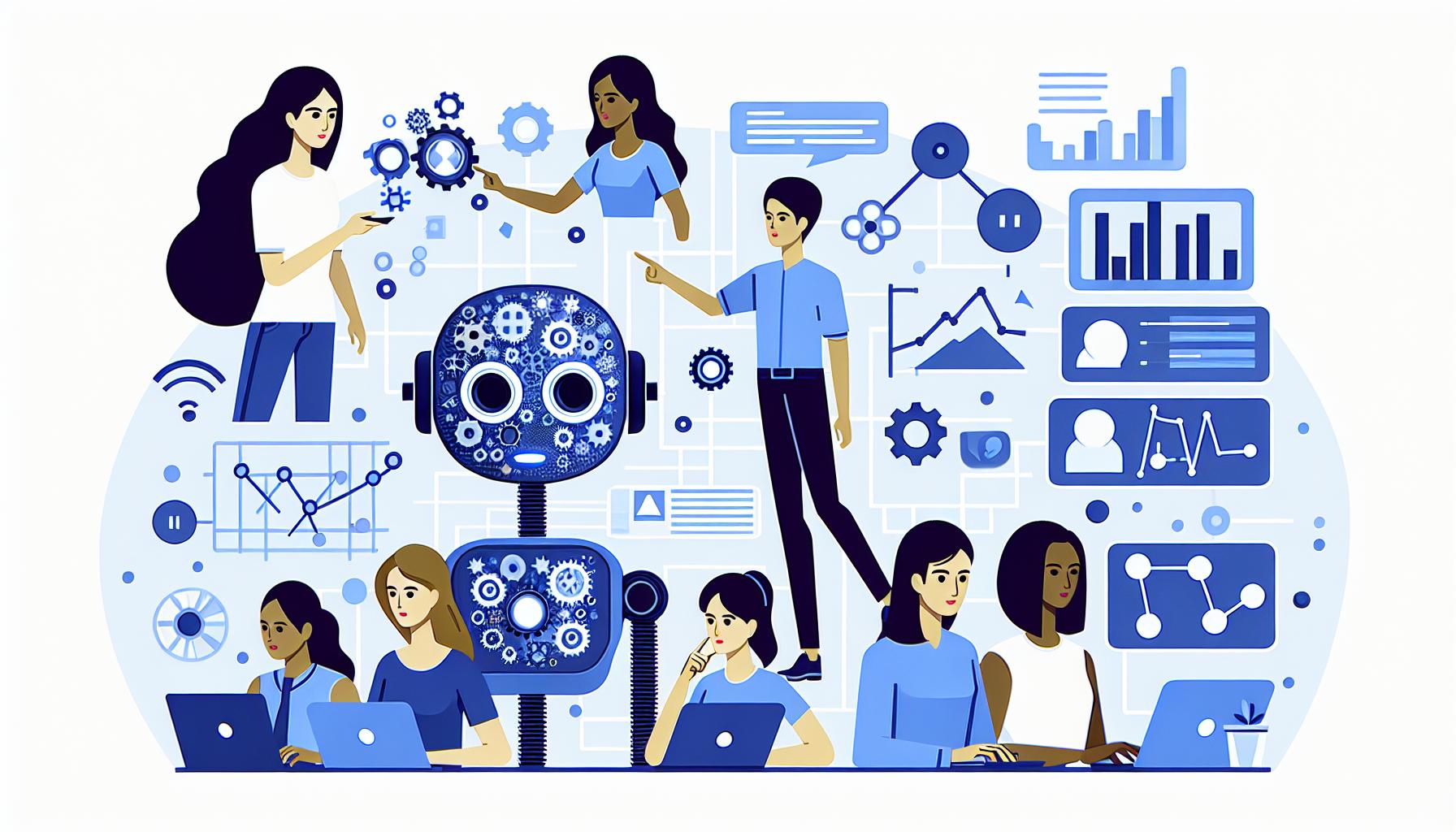Human Feedback: The Core Method for Training AI Assistants

The Significance of Human Feedback in AI Training
Artificial Intelligence (AI) has become an integral part of modern business operations, enabling companies to automate tasks, enhance customer experiences, and make data-driven decisions. However, behind every efficient AI system lies a robust training process that ensures its accuracy and relevance. One of the most critical components in this training pipeline is human feedback. This article delves into the methodologies and importance of human feedback in training AI assistants, focusing on active learning, the role of human annotators, and the contribution of domain experts.
Active Learning: The Human Touch in Machine Training
Active learning is a machine learning technique that involves human annotators in the training process. Unlike traditional machine learning methods that rely solely on pre-existing labeled data, active learning identifies the most informative data points for labeling, which are then annotated by humans. This interactive feedback loop helps fine-tune the AI's performance.
The process begins with an AI model making predictions. The model identifies instances where it is uncertain or likely to make errors. These uncertain instances are then sent to human annotators for labeling. The newly labeled data is fed back into the model, which retrains itself to improve accuracy. This loop continues until the AI reaches a desired level of performance.
The involvement of human annotators ensures that the most challenging and ambiguous data points are accurately labeled, leading to a more reliable AI system. This approach not only enhances the model's performance but also reduces the amount of labeled data required, making the training process more efficient.
The Role of Domain Experts
While general human annotators can contribute significantly to AI training, the involvement of domain experts takes the AI's capabilities to the next level. Domain experts possess specialized knowledge in specific fields, making their feedback invaluable for training AI systems that require intricate understanding and expertise.
For instance, training a medical AI assistant to diagnose diseases accurately necessitates input from medical professionals. Their expertise ensures that the AI is not only accurate but also reliable in specific medical contexts. Similarly, financial experts are crucial for training AI systems in the finance industry, where accuracy and domain-specific knowledge are paramount.
Benefits of Incorporating Human Feedback
Incorporating human feedback in AI training offers numerous benefits:
- Increased Accuracy: Human feedback helps fine-tune AI models, leading to higher accuracy and relevance in their outputs.
- Cost Efficiency: Active learning reduces the amount of labeled data needed, making the training process more cost-effective.
- Specialized Knowledge: Domain experts provide specialized insights, ensuring the AI assistant's proficiency in specific fields.
- Continuous Improvement: The feedback loop facilitates continuous improvement, adapting the AI to new data and scenarios.
Practical Applications for Business Owners
For business owners, understanding the role of human feedback in AI training can translate to more reliable and effective AI solutions. Here are some practical applications:
Improved Customer Service
AI assistants can be trained to handle customer queries more efficiently by incorporating feedback from customer service representatives. The AI learns to address common questions accurately and can escalate complex issues to human agents when necessary, enhancing the overall customer experience.
Enhanced Decision-Making
Businesses can leverage AI systems trained with input from industry experts to make data-driven decisions. Whether it's financial forecasting, supply chain management, or marketing strategies, AI assistants can provide valuable insights and recommendations based on expert feedback.
Product Development
Incorporating feedback from product designers and engineers can help train AI systems to suggest innovative solutions and improvements. This accelerates the product development cycle and ensures that new products meet market demands effectively.
Risk Management
AI systems trained with feedback from risk management professionals can identify potential risks and suggest mitigation strategies. This proactive approach helps businesses navigate uncertainties and maintain operational stability.
Conclusion
Human feedback is an indispensable element in training AI assistants, ensuring their accuracy, relevance, and reliability. Methods like active learning and the involvement of domain experts play a vital role in optimizing AI performance. For business owners, integrating human feedback into AI training processes can lead to more effective and dependable AI solutions, ultimately driving business growth and success.




